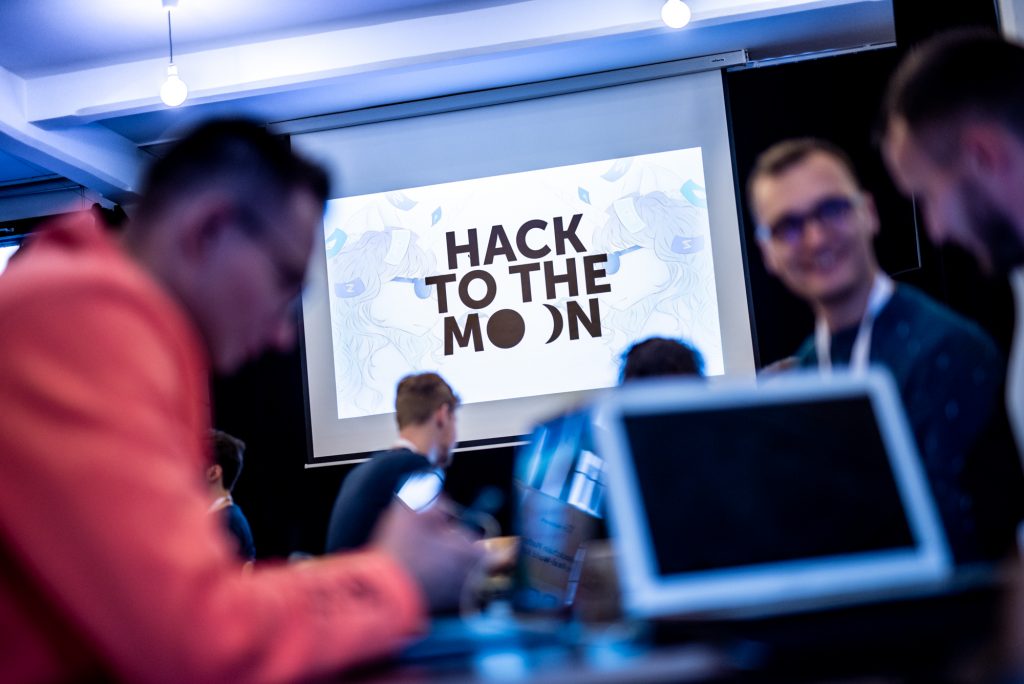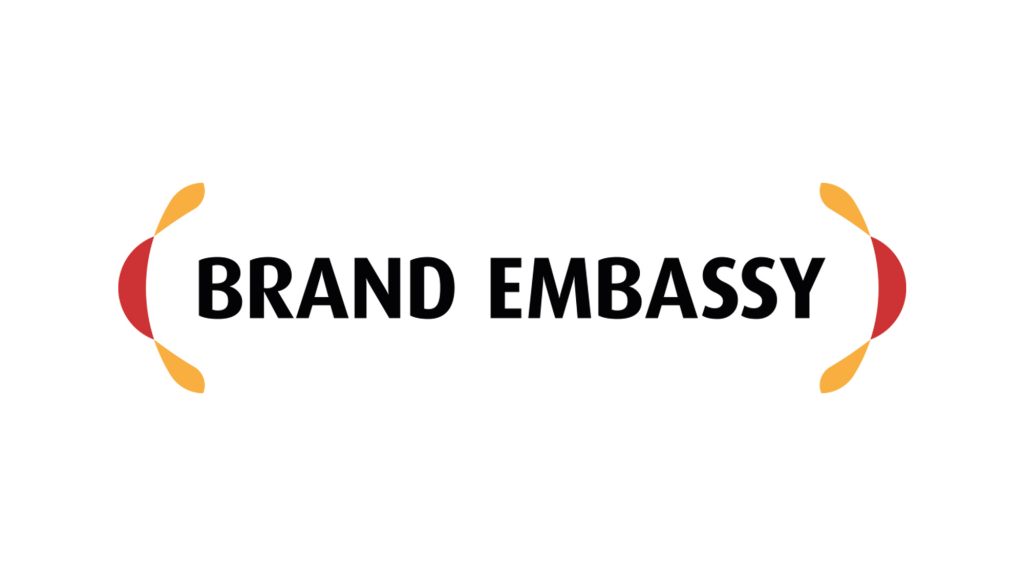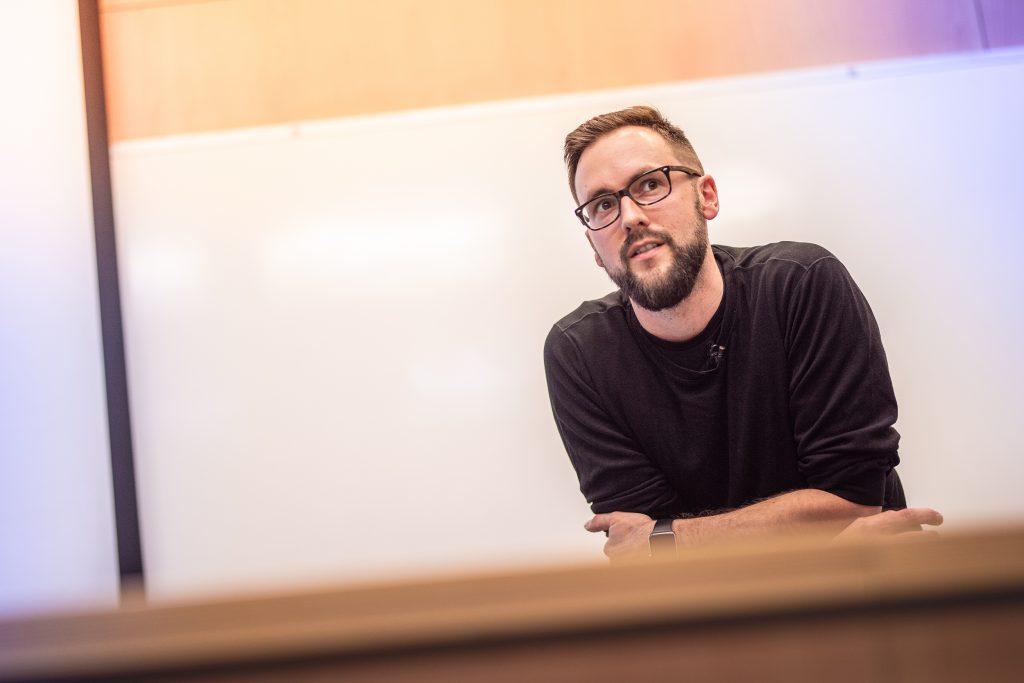All newsVIKTOR KUSTEIN: PEOPLE SIMPLY HAVE TO FIT IN WITH THE CORPORATE CULTURE
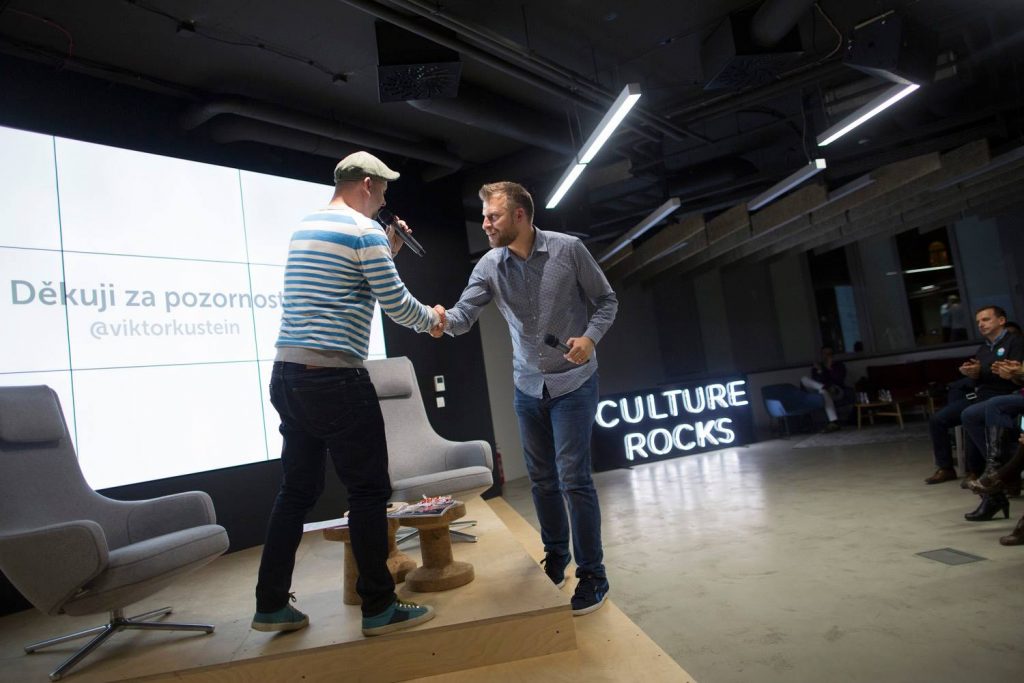
This interview was conducted by Petr Skondrojanis (CEO of COCUMA) in connection with preparations for the Culture Rocks conference. “I first met Viktor when creating the COCUMA profile for Rockaway, when we got together and hit it off, because we both have a very similar view of what HR is and how not to do it. Viktor says about himself that he does HR 2.0 – not Human Resources, but Human Relations. He co-founded the training company Growjob, which is highly focused on corporate cultures, and subsequently came to Rockaway. What interested me about Victor from the beginning is his completely different approach. He approaches HR in a holistic manner; he doesn’t concern himself with consequences, but rather with causes, and he works a lot with the environment and mainly with the people who create the environment. And I was interested in how his role at Rockaway has shifted over the course of two years, what fills his calendar and what he gets from organising hackathons and creating communities.”
Petr Skondrojanis: Viktor, why do you say “I’m investing my time in Rockaway”?
Viktor Kustein: First of all, I’m very interested in the culture of the investment environment and I have seen that there is strong growth potential here. Over time, I started to engage in things more broadly and, in addition to corporate culture, I had the opportunity to engage in operations, HR processes and recruitment. When I think back on it now, after two years we have actually gone back to the beginning. “HR 2.0” is only me and my colleague Eva Krausová and we are engaged with that because of the reason I came to Rockaway, which is the corporate culture. We don’t deal much with operations; we are rather involved in strategic matters.
PS: But today Rockaway is quite different from the firm you joined. How does that work in your case?
VK: Rockaway is still a firm with 26 people. I can say with a clear conscience that we concentrate on the global market and at Rockaway we want people who have experience from global firms or real potential. Our team is small and we don’t often recruit people directly into Rockaway. There are people who work for our portfolio firms and then of course they happily write in their CVs that they worked for Rockaway. But in reality, that’s not true. There are still only 26 of us. It might be good to know that.
We operate as an investment group that is responsible for a full range of other companies, in which there is a terrifyingly large number of talented people – but every person works only on his or her parent project. My task is to connect these people and enable them to work together. To use each person’s knowledge to the benefit not only of the parent project, but also of the entire portfolio. I’m not talking about data here, but rather about principles – sometimes it is necessary to solve a problem that was solved long ago in another portfolio firm and it would be a needless waste of time to start from scratch. We thus started creating internal communities.
PS: So, it’s a kind of centralisation of good ideas and principles?
VK: The word “centralisation” is not precise – the situation is a bit different in every company, so we can’t approach all of them in the same way, even though we would perhaps like to. In reality, this involves exchange of experience and mainly creation of communities in particular fields that have long been communicating with each other, working together and exchanging experience and knowledge. They simply assist each other.
PS: If I understand this correctly, you take a capable person from Mall Group and send him to inspire Invia?
VK: We want this collaboration to be absolutely voluntary, so we don’t “send” anyone anywhere. We only make it possible for that to happen. For example, a person shares his or her experience with others on a forum or in a personal meeting. It’s often enough for them to meet so that when they need something, they know where to look. That’s why we do this. For us, it means that people know each other and they know who can help them. That really saves a lot of resources and mainly time.
PS: What kind of internal communities are you currently planning to support and create?
VK: At present, we are focusing on six areas: Marketing, Design (UX), Business Intelligence, Sales, Product and, of course, developers, with whom we actually started a year and a half ago. This involved a pilot project in which we wanted to find out if an internal community could work. It can. We call them ROCdevs.
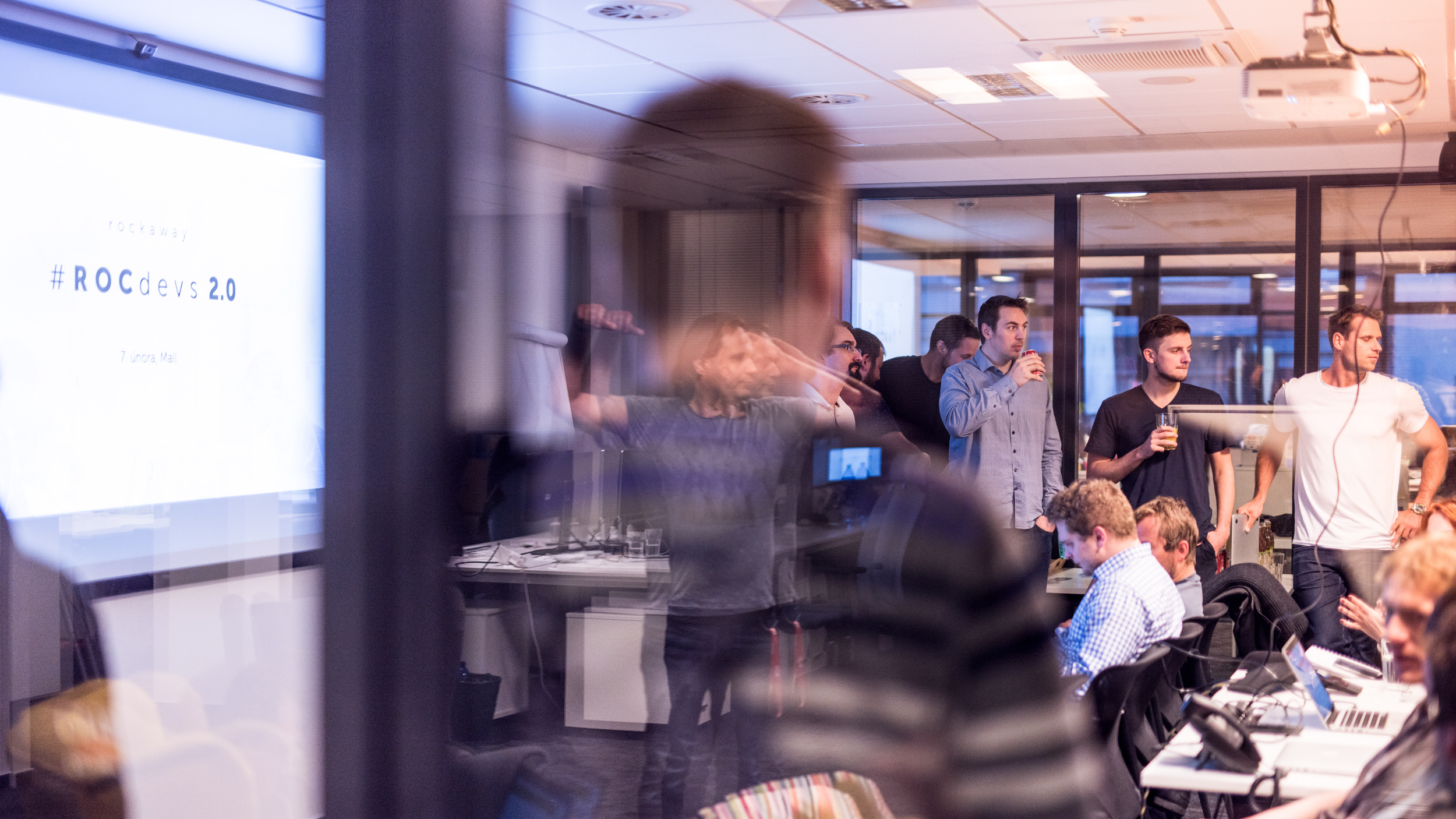 ROCdevs meet often and regularly; their community operates via a Facebook group
ROCdevs meet often and regularly; their community operates via a Facebook group
PS: ROCdevs even have their own brand… Do other communities also have their own identities?
VK: Yes, all of them are branded. With just a bit of exaggeration, it can be said that specialised firms are being established within firms.
PS: When I became aware of Rockaway two years ago, you had the Value Creation Team, which took care of individual brands in the portfolio. That came to an end and you and Eva joined the firm. What changed and how do you work.
VK: We basically work as a sort of mediator. Our role is to combine and coordinate. Therefore, the topic of corporate culture is very important – it is apparent to us that a goal can be reached in many different ways and we want everyone to realise that and strive to go in the same direction.
People often imagine that Rockaway’s office is staffed with dozens or hundreds of people who, for example, handle HR for the whole group. But there are still only two of us – and we have to strive that much harder. Value Creation now represents for us a generally valid principle, a style of approach. We strive to do things so they don’t serve only themselves, so that they lead to something and have that frequently mentioned “value added”. This also applies for the corporate culture.
PS: And can that be managed? When we did the profile for Cocuma, we felt that your culture is very fast-paced and very demanding.
VK: You’re right, our culture isn’t for everyone. Last year we researched that internally, and our team’s DNA is truly very difficult to understand, though certain values are shared. A common denominator is, for example, dynamics (and that’s not a cliché; we truly maintain a very fast pace) and personal responsibility. People have to handle a lot of things independently.
PS: Does that mean that your way of working and the results are derived mainly from your definition and what you think is correct?
VK: Yes, exactly. But that is terribly demanding with respect to critical thinking. On one hand, you do a lot of things right that no one has ever done before, and you get the feeling that it’s actually easy. Then, on the other hand, something doesn’t come out right and you have to find the motivation to deal with another, equally complex matter where the result is unclear. It’s important to keep your feet on the ground and look deeply into things and not be so influenced by emotion, even though you actually often work intuitively.
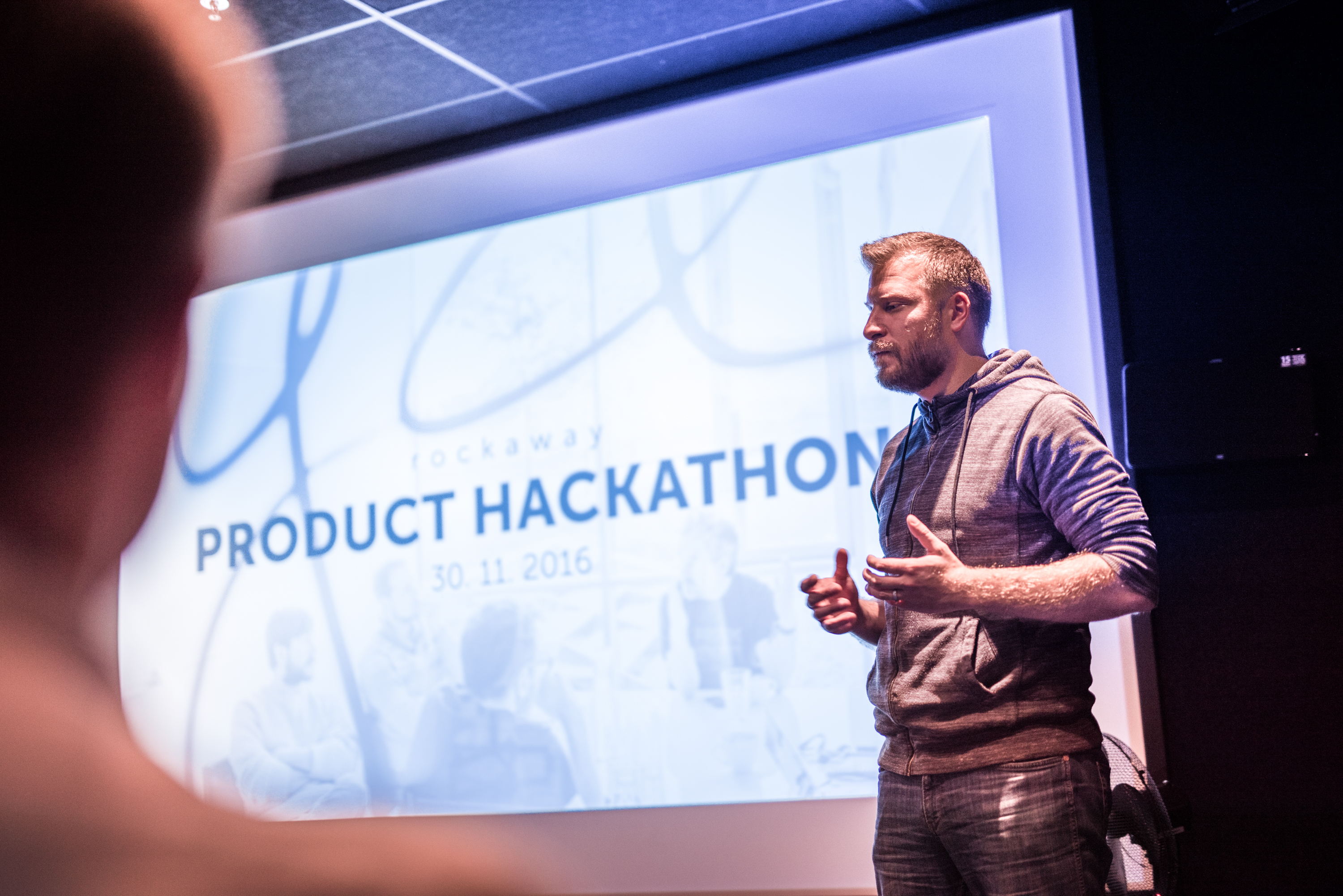 Product managers are often a very neglected community – Rockaway is striving to change that. The photo shows Viktor moderating the first Product Hackathon
Product managers are often a very neglected community – Rockaway is striving to change that. The photo shows Viktor moderating the first Product Hackathon
PS: For me and for you, this is a modern way of working. You believe in what you know how to do and if you don’t know how to do something, you try to do it according to your best knowledge and your conscience. But how do you “set KPI”? (So that we can somewhat approximate corporate terms.)
VK: Clearly, but what sort of KPI would you want to call that? KPI for creating internal communities? Whether they exist or not? And whether they work or not? This is a purely emotional matter – it is perhaps best to assess that which is part of the given community. It’s hard to measure, so to be honest, we don’t much apply numbers to that.
PS: In conclusion, please tell me an attribute of a good corporate culture, meaning that the company functions, people gladly go there, it has results, it moves forward – and it is identifiable. After all, that is something that we have both been researching for a few years already.
VK: The first thing that definitely comes to mind is that you feel the given culture, that you go there and you don’t need a manual for what you should do or how you should communicate. You just somehow instinctively know or you can pick it up by watching others. It’s a sort of emotion – it can be said that a strong culture is intuitive. You easily determine whether you belong there or not. And I have to say that some people find that out rather quickly. For example, a month is enough for it to become apparent whether it works or not – for better or worse. In this respect, there is no bad result. People simply have to fit in with the corporate culture.
PS: Finally, I have to ask about one more thing. Your work with culture and communities is very progressive. I feel pressure from that. How does the Culture Rocks conference fit in with that?
VK: There are some truly great examples of a strong culture in our portfolio – this time, Damián Brhel of Brand Embassy is coming to Culture Rocks. Brand Embassy is a start-up that is highly engaged in the culture and for which internal communication is the alpha and the omega. They really have something to say on this topic. We thus see the whole conference as a platform for exchanging ideas and tips, for sharing inspiration. We have believed from the beginning that corporate culture is important for every firm and it should receive the highest possible degree of attention.

 ROCdevs meet often and regularly; their community operates via a Facebook group
ROCdevs meet often and regularly; their community operates via a Facebook group Product managers are often a very neglected community – Rockaway is striving to change that. The photo shows Viktor moderating the first Product Hackathon
Product managers are often a very neglected community – Rockaway is striving to change that. The photo shows Viktor moderating the first Product Hackathon